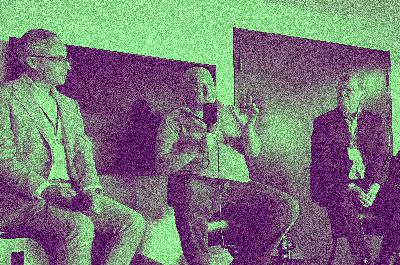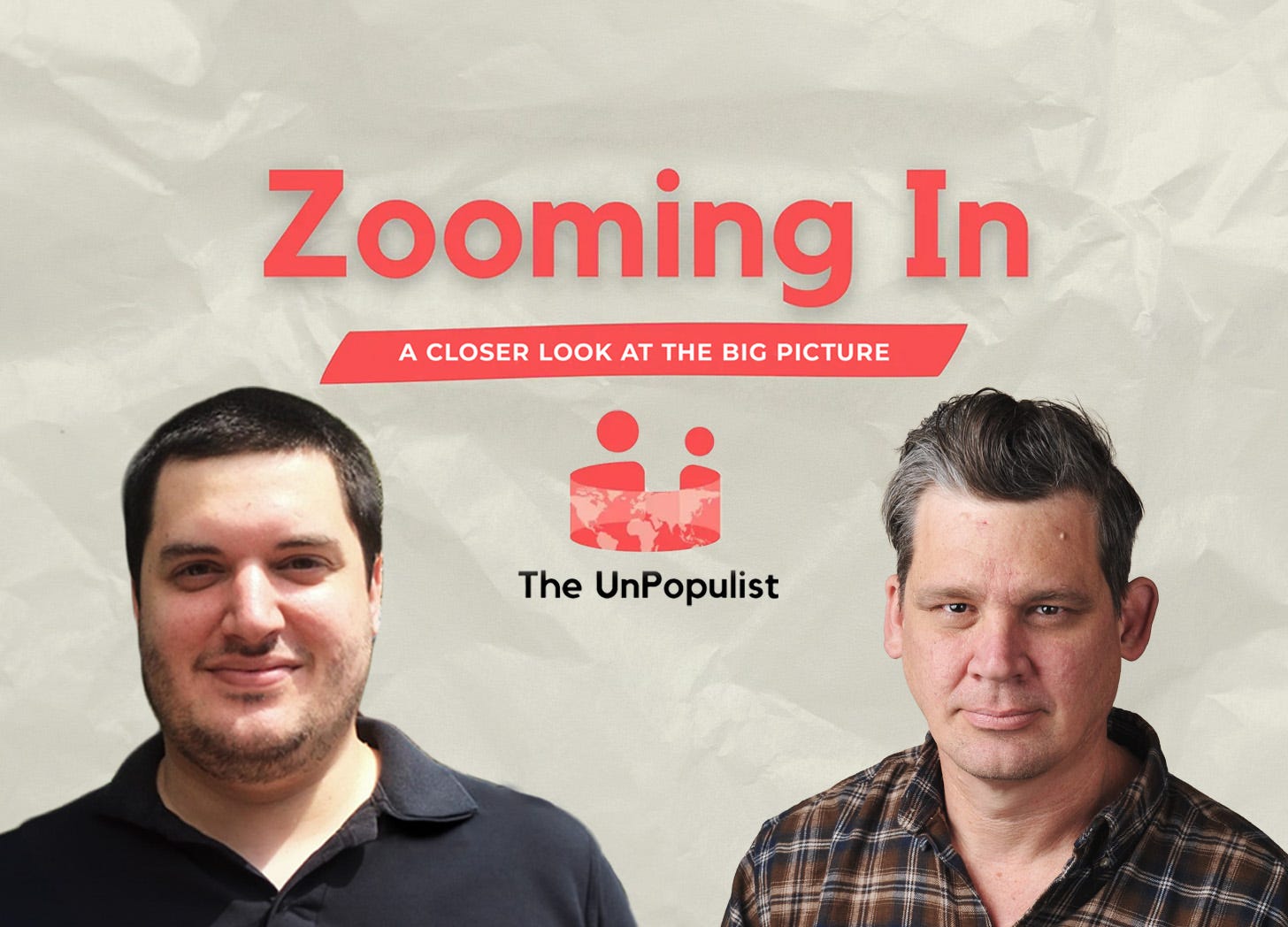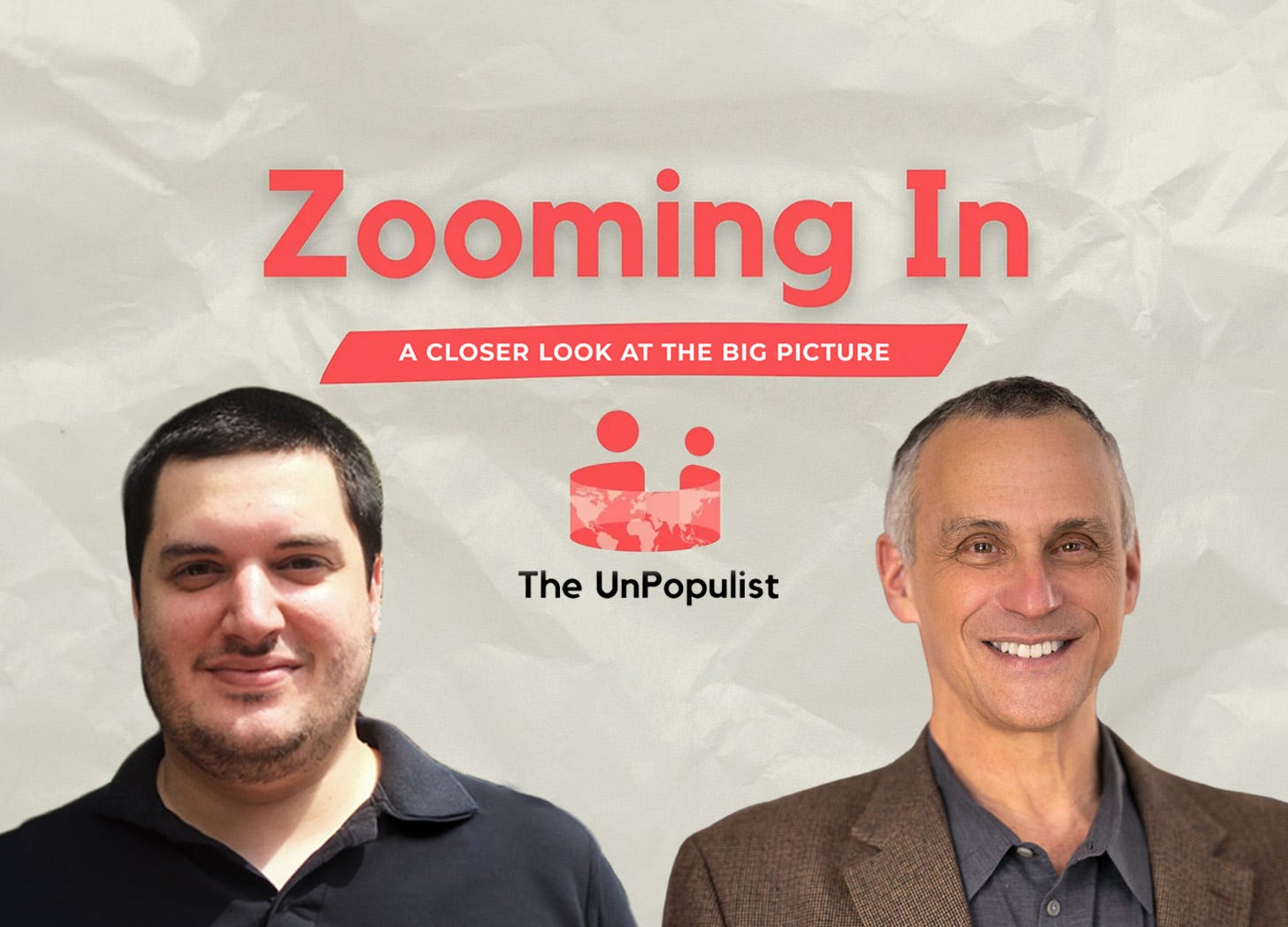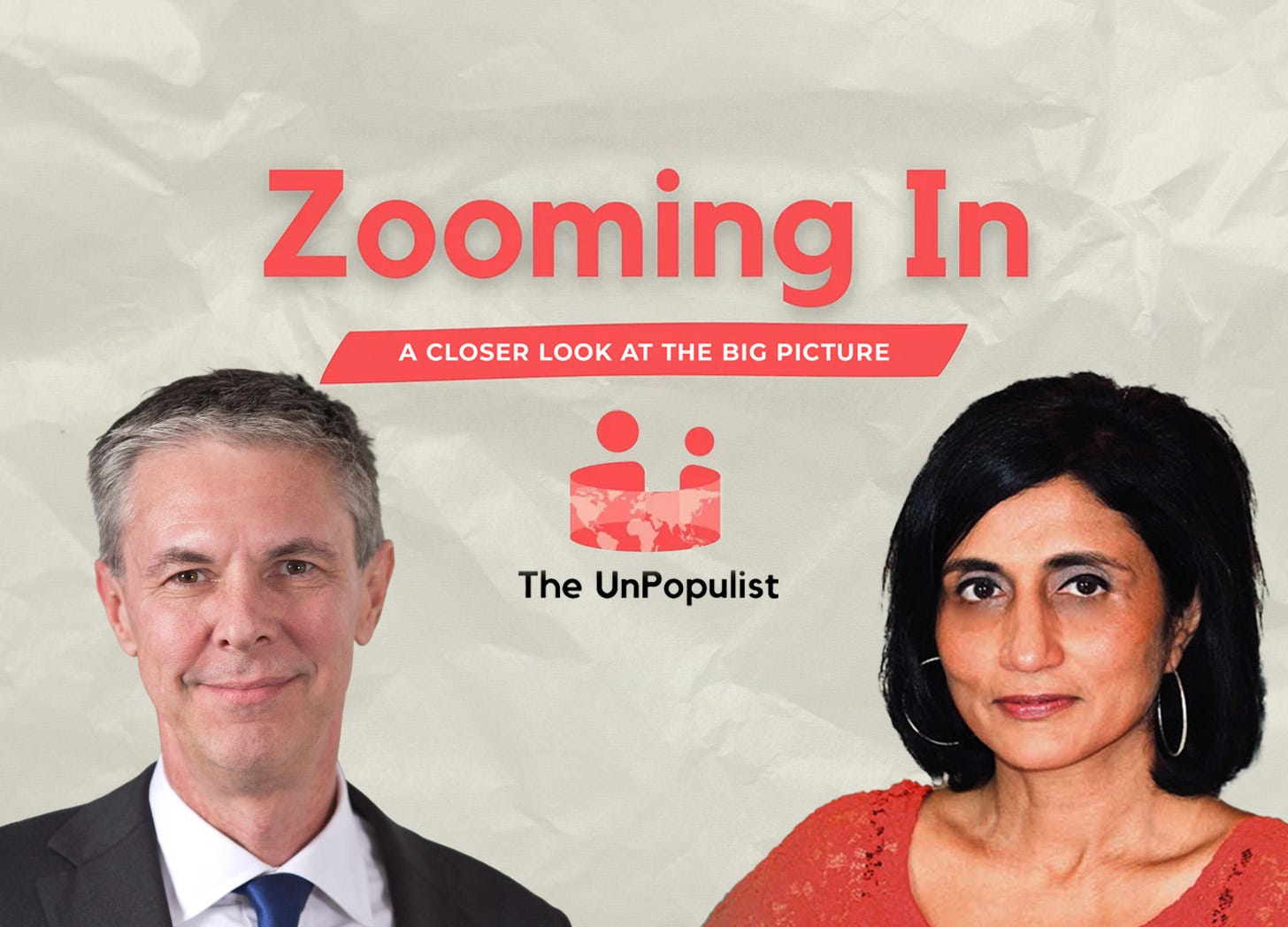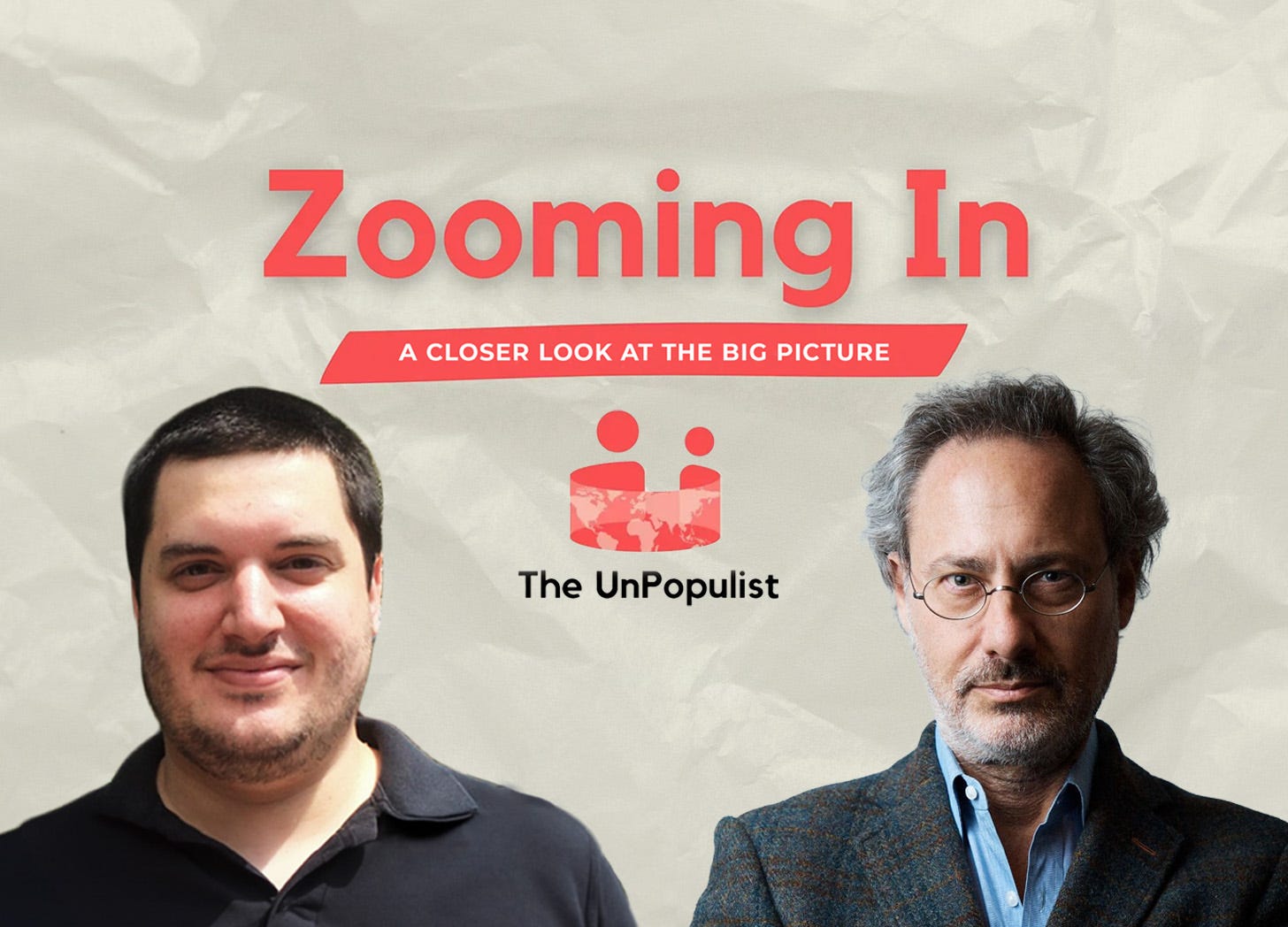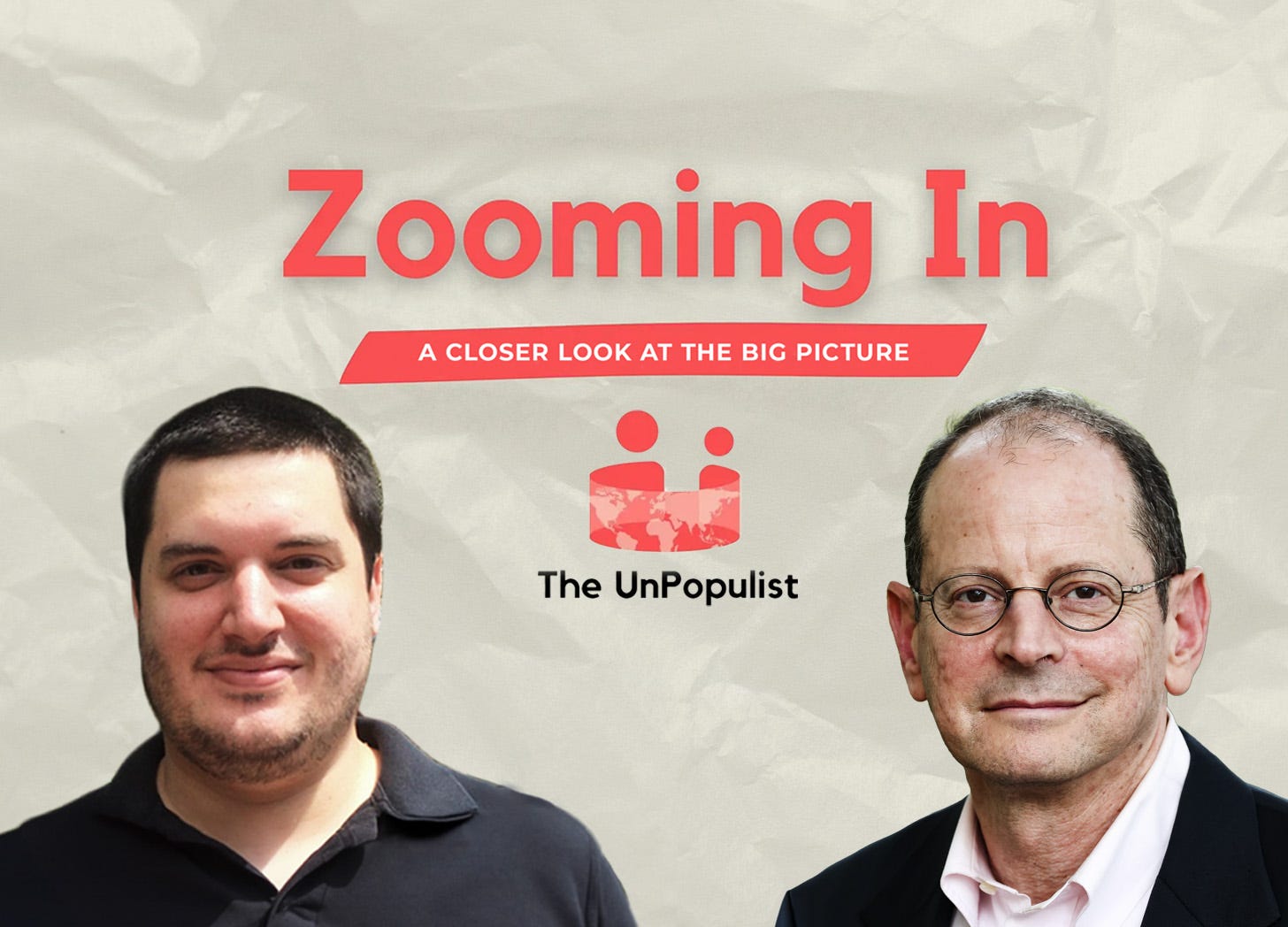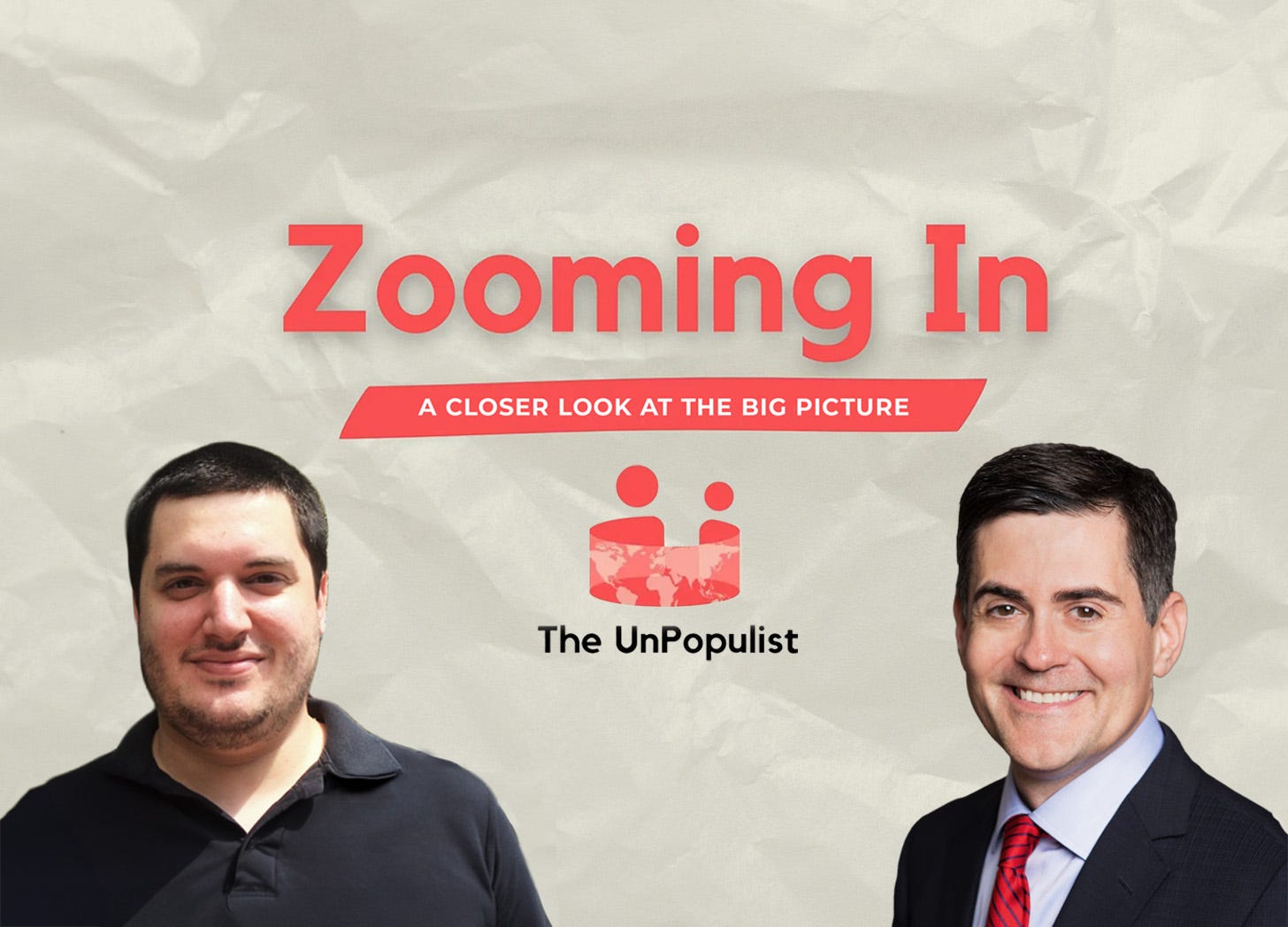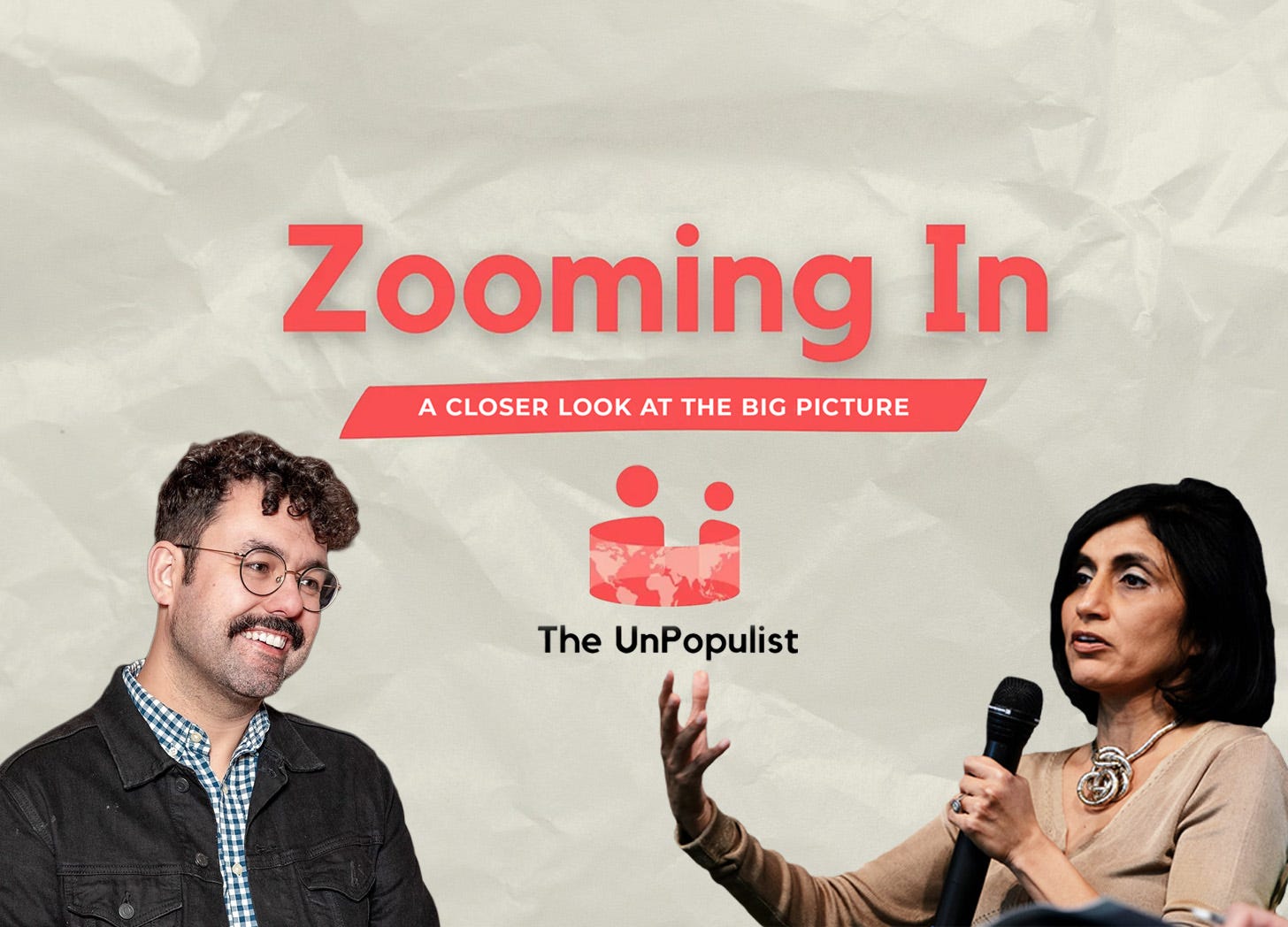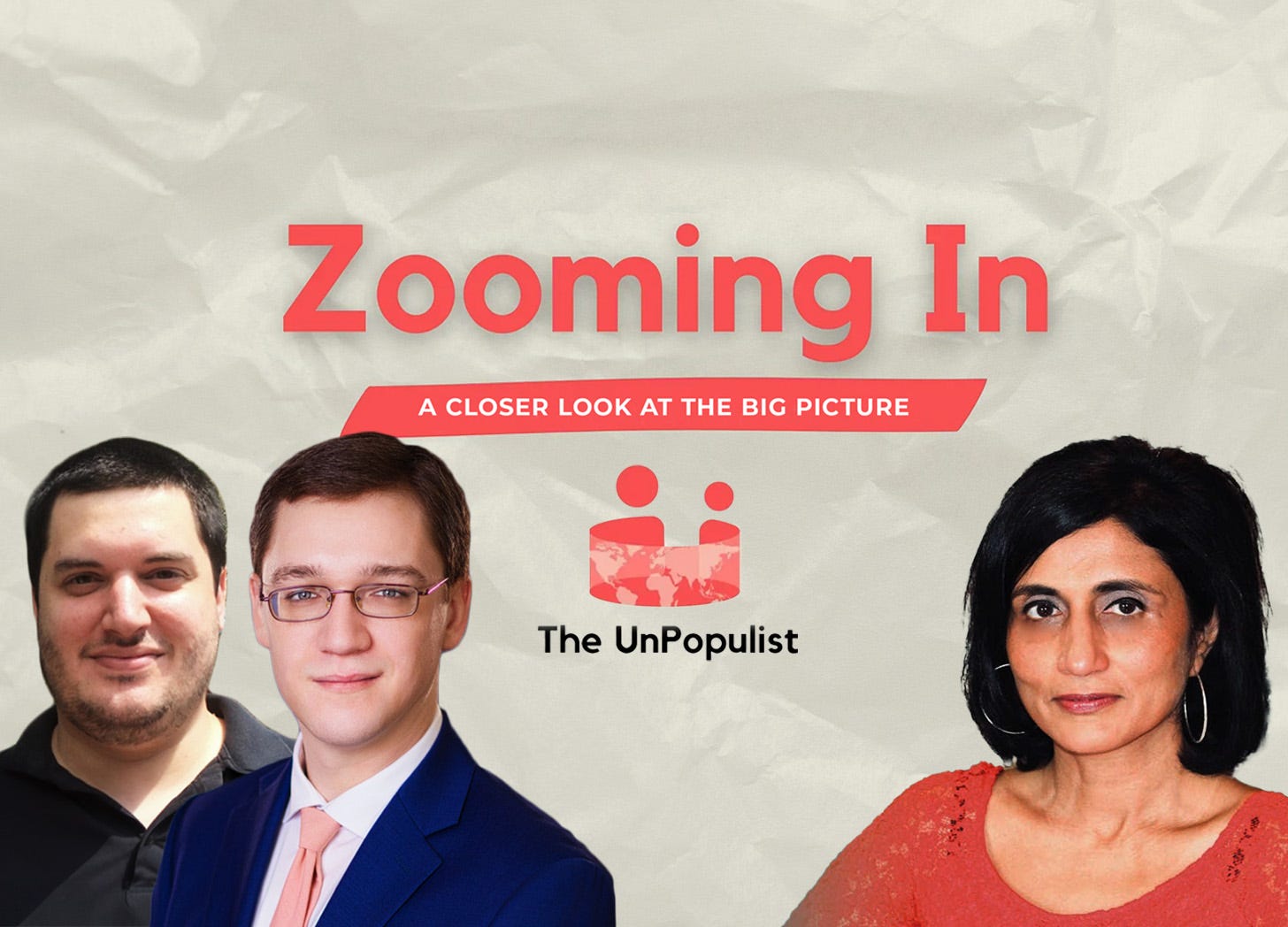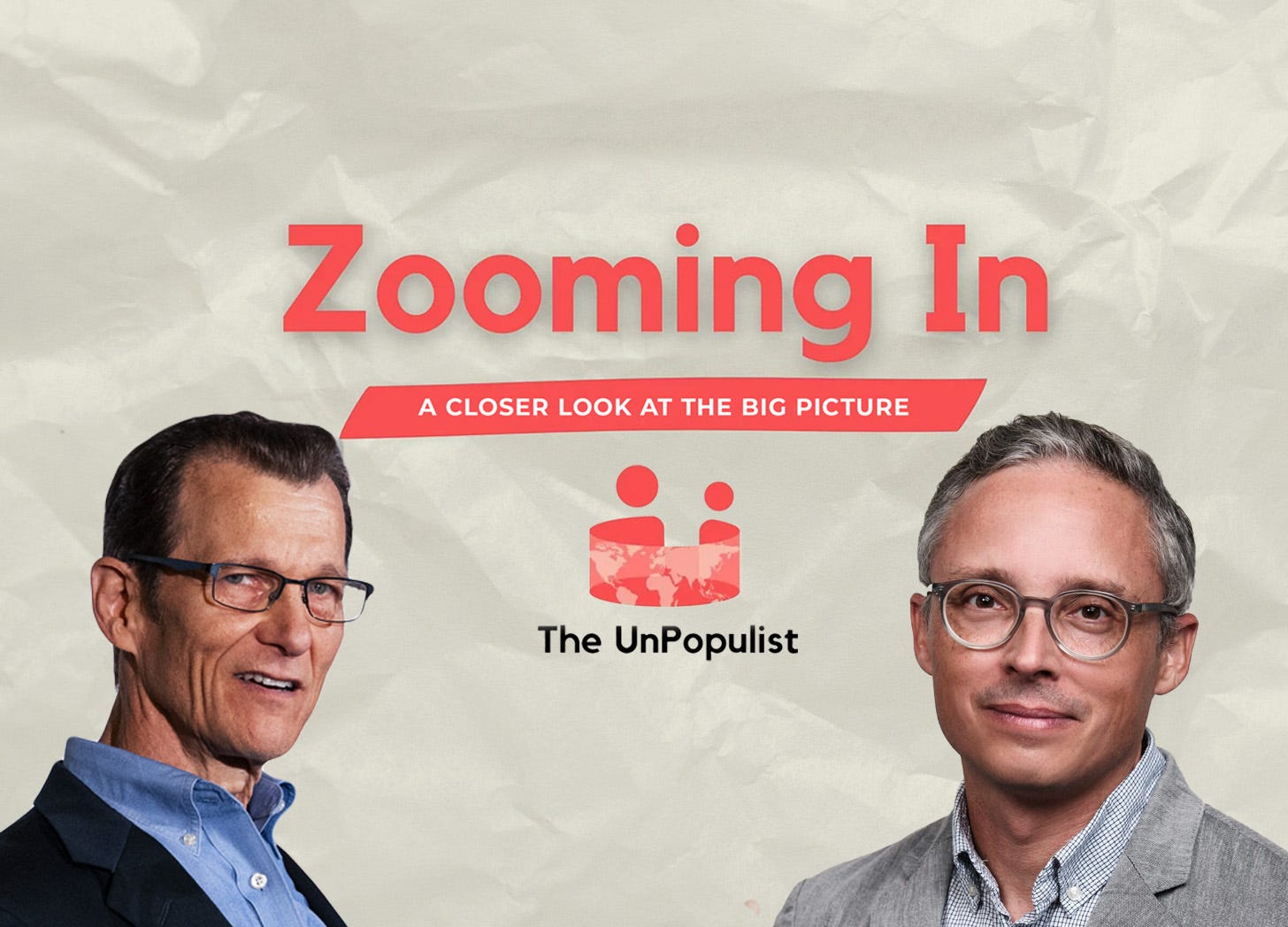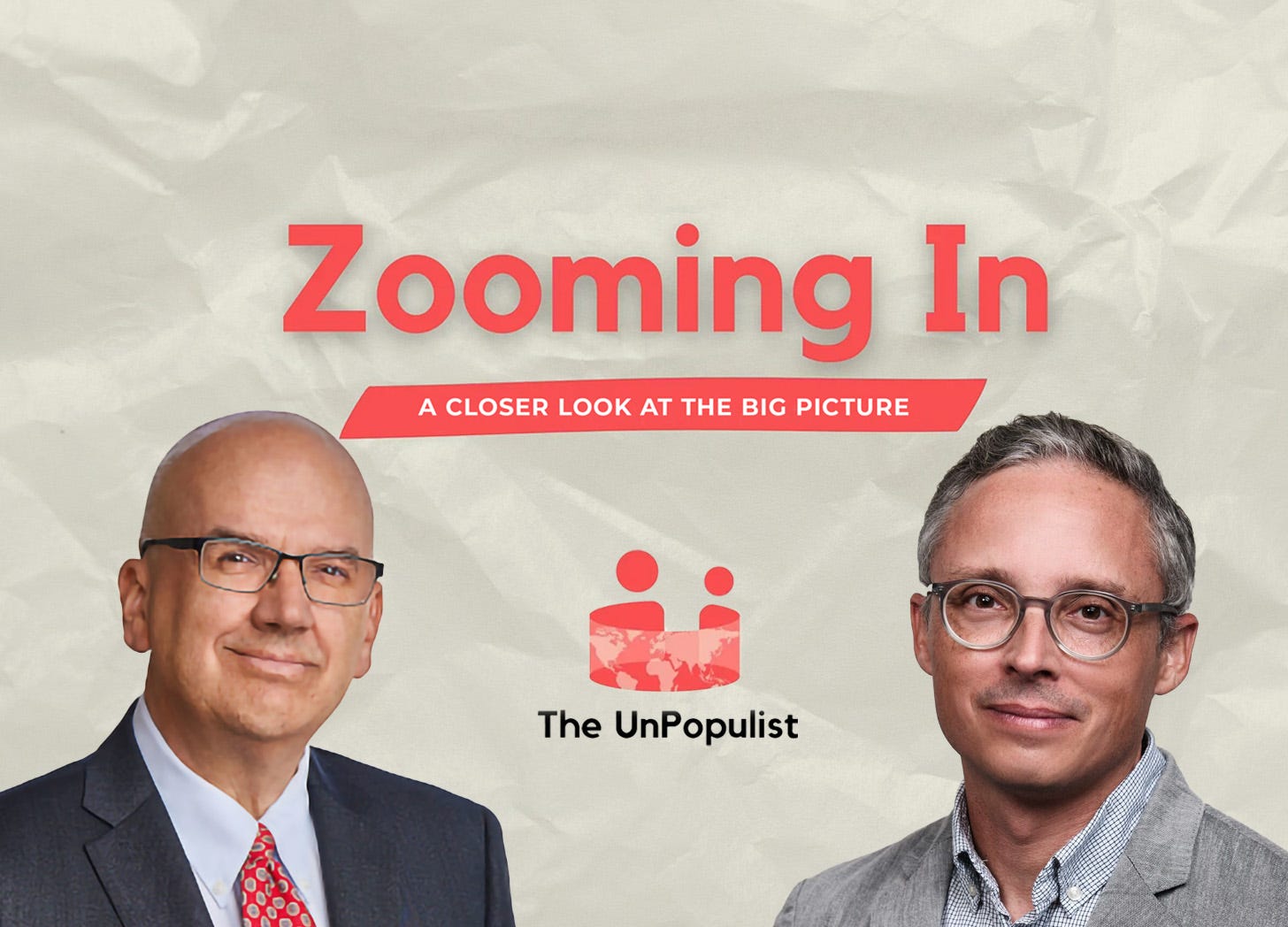How Should We Respond to the MAGA Right's Embrace of the Cult of Cruelty? A Conversation With Radley Balko and Charlie Sykes
Description
Listen to Zooming In at The UnPopulist in your favorite podcast app: Apple Podcasts | Spotify | Google Podcasts | RSS | YouTube
Landry Ayres: Welcome back to Zooming In at The UnPopulist. I’m Landry Ayres.
We find ourselves in a deeply troubling moment for American democracy, grappling with the stark realities of a political landscape increasingly defined by fear, performative cruelty, and a conscious assault on established norms and institutions.
This special live recording from ISMA’s “Liberalism for the 21st Century” conference features host Aaron Ross Powell, as well as longtime observer of the militarization of police and author of the Substack, The Watch, Radley Balko, and co-founder and former contributor of The Bulwark, Charlie Sykes, author now of the Substack To the Contrary. They explore the mechanisms of this assault, how a manufactured crisis of fear is being weaponized by law enforcement, and the profound implications for civil liberties and the rule of law in America.
The discussion is insightful, if unsettling.
A transcript of today’s podcast appears below. It has been edited for flow and clarity.
Aaron Ross Powell: Welcome to a special live recording of The UnPopulist’s Zooming In podcast here at the “Liberalism for the 21st Century” conference in Washington, D.C. I am Aaron Powell and I’m delighted to be joined by Radley Balko and Charlie Sykes to talk about the situation we find ourselves in.
To me, the most striking image of Trump’s campaign, months before he was reelected, was from the RNC. Before that, there was the weird one of him in the construction vest. But the most terrifying image was the one depicting the “Mass Deportation Now!” signs and the sneering and cruel faces celebrating the culture that they were wallowing in. Those faces made me think, as I was looking at them, of the faces in photographs during the Civil Rights Movement of police officers about to inflict violence, turn on firehoses, let dogs loose, and so on. And it felt like what we are seeing now.
The “Mass Deportation Now!” images characterize not just the policies of Trump 2.0, but the attitude that they’re trying to inflict upon the country. It feels like a rolling back of what we achieved in the 1960s from the Civil Rights Movement—it feels like we’re in a retreat from that. This is a conscious attempt to roll that back. So I wanted to talk about that.
Radley, I’ll start with you. We’re sitting in D.C. right now as National Guard troops and members of all sorts of agencies are patrolling the streets. Is this surprising to you—the pace at which these nominally public servants, who are supposed to serve and protect, have embraced this role of violence and fear and chaos?
Radley Balko: I’m surprised at how quickly it’s happened. I’ve been talking to people about this day for the last 20 years. I’ve been warning about the gradual militarization of our police, which is something that has happened in conjunction with the drug war and then the war on terror over 40 or 50 years.
That debate was always about, “How militarized should our police be? How do we balance safety, and giving police officers what they need to protect public safety, with civil liberties and constitutional rights?” The fear was always that another Sept. 11 type event would cause what we’re seeing now—that there would be a threat, a threat that everybody acknowledges as a threat, that would cause an administration, states, mayors, to crack down on civil liberties. But it would at least be a threat that everyone recognizes as a threat. We would be debating about how to react to it.
When it comes to what’s playing out today, there’s no threat. This is all manufactured. This is all made up.
Your juxtaposition of those two images—the clownish image of Trump in the construction vest and the other one depicting this genuinely terrifying anger and glee a lot of his followers get from watching grandmothers be raided and handcuffed and dragged out of their homes—show the clownishness and incompetence of this administration juxtaposed with the actual threat and danger, the hate and vitriol, that we see from his followers.
We always hear that story about Ben Franklin after the Constitutional Convention: a woman comes up to him and says, “So, what is it, Mr. Franklin, do we have a republic or a monarchy?” And he says, “A republic, if you can keep it.” That phrase, of course, has been echoed throughout the ages. If Franklin were alive today, he would say, “You know, when I said that, I was worried about a Caracalla or a Sulla or a Caesar.” Instead it’s like, this guy, the guy that has to win every handshake, that’s who you’re going to roll over for?
I saw a lot of libertarian-ish people making this point before the election—that Trump’s not a threat, he’s a clown, he’s incompetent, he’s not dangerous. And you know what? He may be incompetent, but he’s put people around him this time who do know what they’re doing and who are genuinely evil.
So, on some level, this was the worst case scenario that I never really articulated over the years when I’ve talked about police militarization. This is actual military acting as police, not police acting as the military. But here we are and they’re threatening to spread it around the country to every blue city they can find.
Powell: He’s a clown, he’s rightfully an object of ridicule, he doesn’t know anything, he’s riddled with pathologies that are obvious to everyone except him. And yet it’s not just that he won, but that he effectively turned, not all of the American right, but certainly a large chunk of it into a personality cult.
Charlie, given that he seems to be a singularly uninspiring personality, what happened?
Charlie Sykes: Well, he’s inspiring to his followers.
Let me break down the question into two parts.
I was in Milwaukee during the Republican Convention, when they were holding up the “Mass Deportation” signs—which was rather extraordinary, if you think about it, that they would actually put that in writing and cheer it. It’s something that they’d been talking about for 10 years, but you could see that they were ramping it up.
But you put your finger on this culture of performative cruelty and brutality that they have embraced. Trump has made no secret of that. It’s one of the aspects of his appeal. For many, many years he’s been saying that his idea of law and order is to have cops who will break heads and inflict harm. He’s talked about putting razor blades on the top of the wall that Mexico was going to pay for. He’s told stories about atrocities. One of his standard stories—that I think the media just stopped even quoting—was about Gen. “Black Jack” Pershing in World War I taking Muslim terrorists and shooting them with bullets that had been dipped in pig’s blood. Totally b******t—he made the whole thing up. But it was an indication of a kind of bloodlust. He’s talked about extrajudicial killings. He has expressed his admiration for strongmen like Duterte in the Philippines who have done this. He’s talked about having drug courts that would have trials and executions the same day. So this is not a secret.
What is really remarkable is the extent to which he’s communicated that to his base. I mean, there are Americans who legitimately have concerns about immigration and about the border. But what he’s also tapped into is this really visceral hatred of the other and the desire to inflict pain and suffering on them. I think that that is one of the ugliest aspects of his presence in our politics, and we saw that with the “Mass Deportation Now!” signs.
Now, the second part is how he is implementing all of this with his raw police state, his masked brute squads sent into the city streets. And, again, he’s made no se

